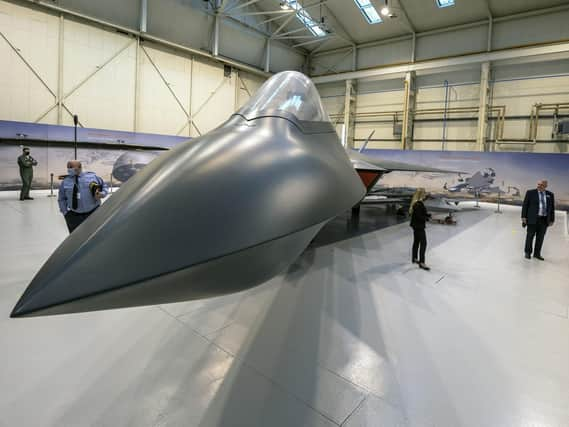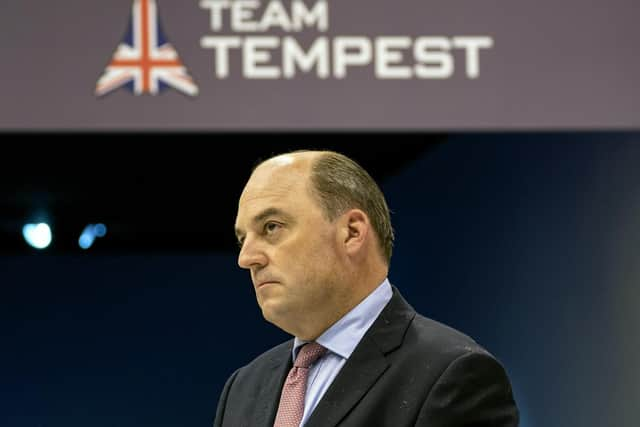£250m BAE Systems contract secures hundreds of Lancashire jobs as Defence Minister visits site


Defence Secretary Ben Wallace, who is also MP for Wyre and Preston North, visited the company’s Warton site last Thursday which employs around 600 people on the Tempest project.
He saw cutting edge technology being used to build the UK’s Future Combat Air System (FCAS) - the next generation of fighter jet which is due to be in the air by 2030 and will eventually
replace the Typhoon jet.


Advertisement
Hide AdAdvertisement
Hide AdThe £250m government contract officially marks the start of the programme’s concept and assessment phase.
Mr Wallace said: “Today marks a momentous step in the next phase of our Future Combat Air System, with a multi-million pound investment that draws on the knowledge and skills of our
UK industry experts.
“Boosting our already world-leading air industry, the contract will sustain thousands of jobs across the UK and will ensure that the UK remains at the top table when it comes to combat air.”
He added: “Lancashire is not just a place where people make things, it’s a place where they are world leaders in making things.
“That pedigree goes far and wide around the world.”
Advertisement
Hide AdAdvertisement
Hide AdDuring his visit, Mr Wallace chatted to workers including apprentices who are being trained in skills including robotics and 3D printing in what has been branded ‘The Factory of the
Future’.
The minister said: “The young people I met today, if they play their cards right, can be working on this for 25 years.
“BAE has been brilliant at feeding further education and higher education.”
Chris Boardman, group managing director of BAE Systems’ Air Sector, added: “The funding announced marks a critical next step for the programme.
Advertisement
Hide AdAdvertisement
Hide Ad“Tempest offers an exciting opportunity for the next generation of talent to develop rewarding careers, contributing to important work in support of the defence of our nation.”
Andrew Titterington, 23, who will finish his three year apprenticeship at the end of the year, has just spent six months learning 3D printer skills.
He said: “These are the skills needed by my generation so to be at the forefront of that technology, and to be working on a project like Tempest is a great opportunity.”
Jenny Manning, 32, joined BAE as an apprentice aged 18 and is now an engineer for new technology streams.
Advertisement
Hide AdAdvertisement
Hide AdShe said: “We are seeing the next level of skills and talent coming through and we will be part of the next generation fighter jet.”
The Tempest project means pilots of the future will be wired up to the systems integral to the craft they are flying including drones and other military hardware on the ground.
Engineers are developing sophisticated sensors which will measure the pilot’s brain activity while they are in the cockpit, eye tracking glasses and heart monitors integrated into flying suits.
Steve Formoso, chief test pilot at BAE, said: “Tempest and the systems mean there are huge amounts of information moving between the different parts of the system - aircraft, drones and
other vehicles.
Advertisement
Hide AdAdvertisement
Hide Ad“All that information is there to give you a strategic advantage.”
The programme is being delivered by Team Tempest – combining the expertise of the UK MOD, BAE Systems, Leonardo UK, MBDA UK and Rolls-Royce.
Currently more than 2,000 people are employed on the project across all the partners including 800 at BAE, with around 600 of those at Warton.
The programme is expected to make an estimated £26.2bn contribution to the UK economy and support an average of 21,000 jobs a year.
